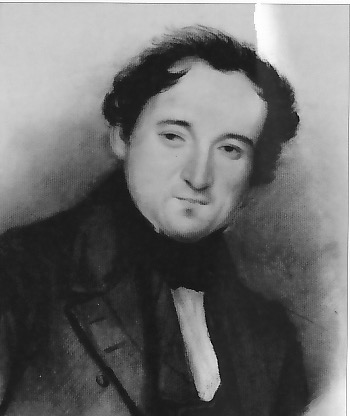

As an amateur translator of Russian poetry, I base my approach primarily on fidelity to the original. I find that many translators take too many liberties, often leading to a translation that is far from the original text. Of course these liberties are not usually taken because the translator thinks s/he can improve on the original. Rather, translators take liberties with the text because they want to duplicate the prosodic format.
For example, if the original poem uses rhyme, many translators feel an obligation to duplicate that rhyme scheme. With many languages, especially those that employ inflection as Russian does, duplicating rhymes in English is difficult. As well, duplication of the line can be a challenge with respect to meter and the number of syllables.
To make my point I have chosen—arbitrarily—a poem by Feodor Tyutchev, “Летний Вечер” (Summer Evening), that has been translated under a different title (“Nightfall”) by Vladimir Nabokov (Verses and Versions, 235).
Summer Evening
Already the sun’s burning globe
Has rolled down from Earth’s head,
And the sea waves have swallowed up
The evening’s peaceful fire.
Already bright stars have risen,
And, drawn up above us,
Have raised the celestial firmament
With their watery heads.
Now, with a fuller river of air
Flowing between heaven and earth,
The breast, released from the heat,
Breathes more easily, more freely.
And like a stream, a sweet frisson
Runs through nature’s veins,
As if the waters from a spring
Had touched her burning feet.
Fyodor Tyutchev 1828
Translated by John Cobley
Nightfall
Down from her head the earth has rolled
the low sun like a red hot ball.
Down went the evening’s peaceful blaze
and seawaves have absorbed it all.
Heavy and near the sky had seemed.
But now the stars are rising high,
they glow and with their humid heads
push up the ceiling of the sky.
The river of the air between
heaven and earth now fuller flows.
The breast is ridded of the heat
and breathes in freedom and repose.
And now there goes through Nature’s veins
a liquid shiver, swift and sweet,
as though the waters of a spring
had come to touch her burning feet.
Fyodor Tyutchev 1828
Translated by Vladimir Nabokov
In my view, Nabokov’s translation is not sufficiently faithful to Tyutchev’s poem. In order to duplicate the original poem’s tetrameter and partially the rhyming scheme, Nabokov adds five words, one phrase, and even a whole line. None of these are in the Tyutchev’s poem. As well he omits an important adjective and does away with the poem’s important bipartite structure.
While Nabokov’s rhymes and consistent tetrameters give the impression of a unified poem, the compromises he makes move his translation quite a distance from the original. Some fidelity to Tyutchev’s poem is sacrificed in order to achieve poetic form.
Further, in achieving Tyutchev’s meter and some of his rhyming, Nabokov abandons the overall bipartite structure of the poem and spoils its powerful effect.
Changes by Nabokov
RHYMES
Nabokov doesn’t try to match Tyutchev’s rhyming scheme of four quatrains (abab, cdcd, etc.). But he does rhyme the second and fourth lines in each stanza abcb, defe, etc).
Nabokov skilfully achieves successful rhymes in stanzas 1,2 and 4, but he has to make compromises for the rhymes in stanza 3.
Stanza 3 flows/repose rhyme: First, Nabokov uses an awkward inversion (“Fuller flows”). Second he introduces “ in repose” to modify “breathing,” whereas Tyutchev has “more easily.” Not only is “in repose” slightly awkward, but it doesn’t convey the comparative meaning of “more easily,” The crucial idea of the process of change is lost.
ADDED WORDS
To achieve English tetrameters, Nabokov adds the following words that are not in Tyutchev’s poem.
Line 2 “low” “red”.
Line 3 “down went”
Line 5 “heavy and near the sky had seemed”
Line 7 “glow “
Line 14 “swift”
Line 16 “ come”
OMITTED WORD
Nabokov also omits “celestial” (Line 7). This is an important word. The omission may have been intentional as he was an agnostic.
OVERALL STRUCTURE
Tyutchev divides his poem into two equal parts. The first two stanzas, both introduced by “already,” establish the process of sunset before the present scene in stanzas 3 and 4. Thus, crucially, the second part starts with “now.” It is a signpost for the poems movement from past to present. The scene in the second half with “the fuller river of air” is the focus of the poem: the magical atmosphere, the “sweet frisson” following a sunset:
1. Lines 1-8. The recent past (“already” + past-tense verbs). “Already” starts stanzas 1 and 2;
2. Lines 9-16. The present (“Now” + present-tense verbs).
Nabokov’s translation doesn’t follow this division. He uses “now” and three present-tense verbs (“are rising,” “glow,” “push,”) in the first half of the poem, and he avoids Tyutchev’s repetition of “already” at the start of the first two stanzas.
Nabokov thus changes the poem from a before-and-after structure to a process. Thus he changes the poem’s title to “”Nightfall,” a word that implies process. However, the main point of the poem is the post-sunset magical atmosphere in the second half of the poem, where Tyutchev’s language is heightened to achieve a climax.
Conclusion
Translation of poetry has long been controversial. It always involves compromise. My approach is not mainstream, but it is used by critics to focus on a poem’s content and not on its prosodic qualities. Of course my translations can be labeled as prose in lines. I can accept that criticism. However, in making my translations as readable and clear as possible, I believe they are acceptable as poems. Since Aloysius Bertrand and Baudelaire, with the advent of the prose poem in France, the poetic potential of prose has gradually been accepted.
The photo above is of Fyodor Tyutchev in 1837.
Leave a Comment